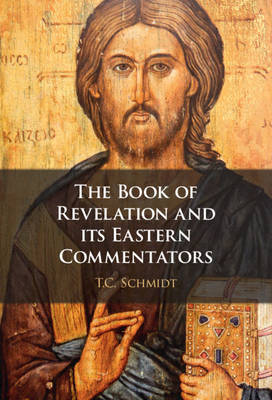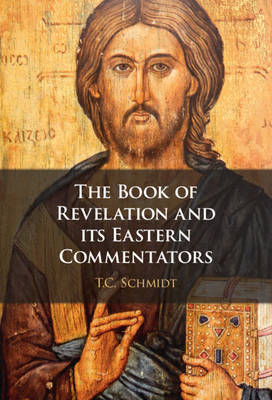
Je cadeautjes zeker op tijd in huis hebben voor de feestdagen? Kom langs in onze winkels en vind het perfecte geschenk!
- Afhalen na 1 uur in een winkel met voorraad
- Gratis thuislevering in België vanaf € 30
- Ruim aanbod met 7 miljoen producten
Je cadeautjes zeker op tijd in huis hebben voor de feestdagen? Kom langs in onze winkels en vind het perfecte geschenk!
- Afhalen na 1 uur in een winkel met voorraad
- Gratis thuislevering in België vanaf € 30
- Ruim aanbod met 7 miljoen producten
Zoeken
The Book of Revelation and its Eastern Commentators
Making the New Testament in the Early Christian World
Thomas Schmidt
Hardcover | Engels
€ 152,95
+ 305 punten
Omschrijving
In this volume, T.C. Schmidt offers a new perspective on the formation of the New Testament by examining it simply as a Greco-Roman 'testament', a legal document of great authority in the ancient world. His work considers previously unexamined parallels between Greco-Roman juristic standards and the authorization of Christianity's holy texts. Recapitulating how Greco-Roman testaments were created and certified, he argues that the book of Revelation possessed many testamentary characteristics that were crucial for lending validity to the New Testament. Even so, Schmidt shows how Revelation fell out of favor amongst most Eastern Christian communities for over a thousand years until commentators rehabilitated its status and reintegrated it into the New Testament. Schmidt uncovers why so many Eastern churches neglected Revelation during this period, and then draws from Greco-Roman legal practice to describe how Eastern commentators successfully argued for Revelation's inclusion in the New Testaments of their Churches.
Specificaties
Betrokkenen
- Auteur(s):
- Uitgeverij:
Inhoud
- Aantal bladzijden:
- 256
- Taal:
- Engels
Eigenschappen
- Productcode (EAN):
- 9781316519363
- Verschijningsdatum:
- 9/09/2021
- Uitvoering:
- Hardcover
- Formaat:
- Genaaid
- Afmetingen:
- 152 mm x 229 mm
- Gewicht:
- 544 g

Alleen bij Standaard Boekhandel
+ 305 punten op je klantenkaart van Standaard Boekhandel
Beoordelingen
We publiceren alleen reviews die voldoen aan de voorwaarden voor reviews. Bekijk onze voorwaarden voor reviews.









